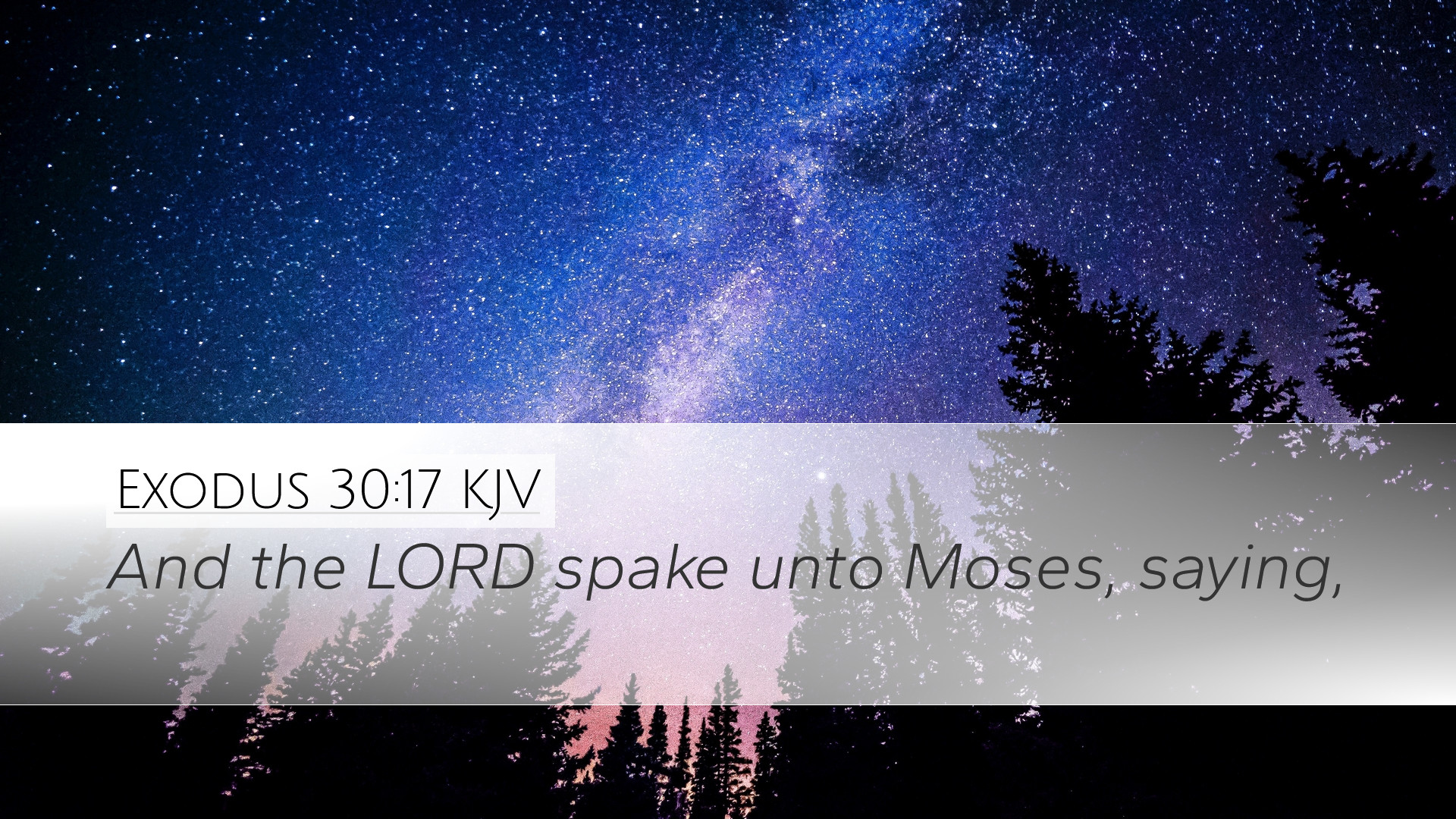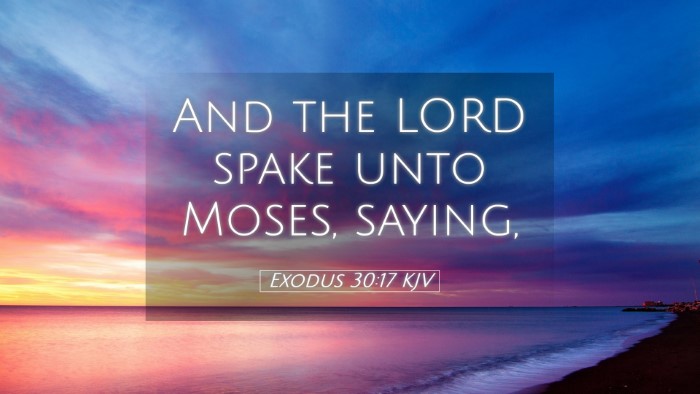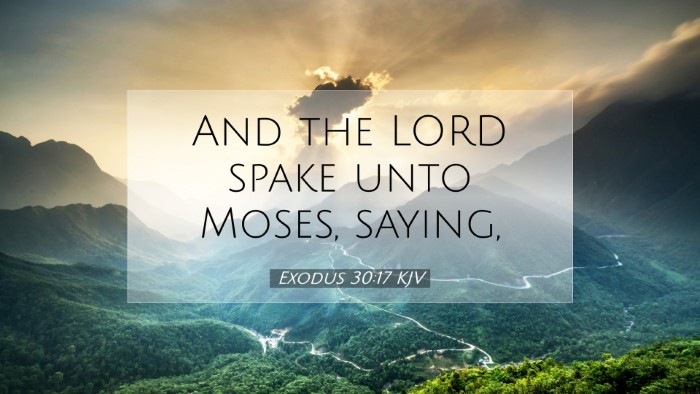Commentary on Exodus 30:17
Verse: "And the LORD spake unto Moses, saying," Exodus 30:17
Introduction
The verse presents a significant moment in the ongoing revelation of the Lord to Moses, emphasizing God's desire for interaction and the impartation of divine instructions regarding the Tabernacle and its consecration. This commentary synthesizes insights from esteemed public domain scholars such as Matthew Henry, Albert Barnes, and Adam Clarke to elucidate the implications and theological significance of this verse.
The Nature of Divine Communication
The phrase “the LORD spake unto Moses" indicates a direct communication from God to His prophet. This underscores several key themes:
- Divine Authority: God as the supreme authority initiates this conversation, revealing His will and plans to Moses.
- Personal Relationship: The interaction highlights the unique and privileged communication between God and Moses, setting Moses apart as a leader of Israel.
- Continuity of Revelation: This verse signifies that God remains active in guiding His people through specific individuals.
Historical Context
This moment occurs in the context of the establishment of the Mosaic covenant and the instructions for building the Tabernacle, where God systematically details the elements required for worship. The establishment of the laver is vital not only for the priests but also as an emblem of sanctification and preparation for service.
Moses as a Mediator
As the mediator of the covenant, Moses serves a pivotal role within the nascent Israelite community. His relationship with God was marked by direct and intimate communication, which was intended to convey both the seriousness and the sacred nature of the rituals to be performed within the Tabernacle. This serves as a reminder to contemporary believers of the importance of mediators in the faith.
Insights from Commentators
Matthew Henry's Commentary
Matthew Henry highlights the significance of the communication itself, stressing that God does not leave His people without guidance. His commentary emphasizes the need for purification before approaching God:
- Emphasis on Holiness: The instructions that follow typically concern maintaining a state of holiness which is crucial for worship.
- Preparatory Steps: The cleansing through the laver serves as a metaphor for spiritual renewal and readiness to serve.
Albert Barnes' Notes
Albert Barnes expounds on the practical implications of God’s instructions given here. He points out:
- Symbolism of the Laver: The laver not only serves a practical, cleansing purpose but also symbolically reflects the need for spiritual purity in God’s presence.
- Call to Holiness: Barnes reflects on the broader theological principle that God desires holiness in His people, which is reiterated through ritual actions in worship.
Adam Clarke's Commentary
Adam Clarke provides a more detailed examination of the significance of the verse within the chapter. He notes:
- Divine Instruction: Clarke interprets this as an indication of God’s desire to instruct His people how to worship correctly.
- Significance of the Laver's Placement: The placement of the laver signifies that cleansing must occur before entering the presence of God, illustrating the importance of preparation in worship.
Theological Implications
From this verse, several key theological implications can be drawn:
- God’s Desire for Relationship: God communicates His expectations and desires to His people, demonstrating His initiative in establishing covenantal relationships.
- The Importance of Spiritual Preparation: The imagery of the laver reinforces the need for purity and preparation in approaching God.
- Continuity and Change: While the civic and ritual aspects of worship may change, the core principles of holiness and divine relationship remain relevant for all generations.
Conclusion
Exodus 30:17 serves as a potent reminder of God's active role in the lives of His people and the importance He places on holiness and preparation for worship. By studying this verse and its context, pastors, students, theologians, and scholars are invited to reflect on how they approach God and the necessity of spiritual cleansing and preparation. GOD speaks, and His words carry the weight of authority and responsibility that resonates through the ages, calling His people to holiness and active engagement in community worship.


